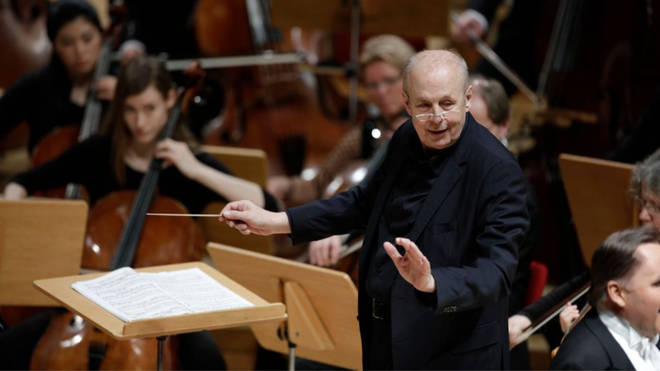It's all about the classical music composers and their works from the last 400 years and much more about music. Hier erfahren Sie alles über die klassischen Komponisten und ihre Meisterwerke der letzten vierhundert Jahre und vieles mehr über Klassische Musik.
Total Pageviews
Monday, August 1, 2022
José Estella - his music and his life
José Estella (1870 - 6 April 1943) was a Filipino composer and conductor. He was the composer of the first Philippine symphony.
Biography
José Estella (1870 - 6 April 1943) was a Filipino composer and conductor. A graduate of the Madrid Conservatory, he returned to the Philippines and there spent his time collecting folksongs and other music. In Manila and Cebu he conducted several orchestras, and was director of the Rizal Orchestra, founded in 1898. He wrote more than 100 waltzes which gained him the popular title of the ‘Philippine waltz king’, and he was the composer of the first Philippine symphony.
George Bernard Green - Overture on Philippine Folk Songs (1974)
Saturday, July 30, 2022
Percy Faith & His Orchestra - A Summer Place - 1959
Friday, July 29, 2022
Love Is A Many Splendored Thing (모정.慕情) - The Film Studio Orchestra & An...
Thursday, July 28, 2022
World Athletics long jump champion is also a classical pianist with a passion for Chopin and Schubert
By Siena Linton, ClassicFM
Malaika Mihambo, an Olympic and world champion long jumper, plays classical piano in her downtime.
Born in Germany in 1994, Malaika Mihambo is one of the greatest long jump athletes competing today.
She currently holds the titles of Olympic, world, and European champion in her sport, most recently winning the gold medal at the World Athletics Championships in Eugene, Oregon on 24 July.
This recent win marks her second gold medal at the competition, having taken home first place in the 2019 event in Doha, Qatar, as well as Olympic gold at Tokyo 2022. She also won the gold medal at the 2018 European Championships, which usually take place every two years but were cancelled in 2020 due to the global pandemic.
Like many athletes, Mihambo has several methods for de-compressing and relaxing after competitions and rigorous training sessions, and one of her great passions outside of athletics is classical music.
In an interview with the German magazine Concerti, Mihambo reveals that she didn’t discover classical music until 2016. She began playing the piano aged 22, and through her learning of the instrument began to delve deeper into the genre.
“Musicians and athletes have a lot in common”, Mihambo says. “Diligence, discipline and passion, which you have to show in order to achieve good results and progress, are particularly important’’.
The German athlete also says she enjoys learning at her own pace without the pressure of success, as a sort of contrast to her thriving career in competitive sport.
In a post shared to Instagram, Mihambo is pictured at her piano with a book of music by Chopin, captioned “Music is a universal language. It give you emotions and something to think about. It’s definitely soul food”.
Mihambo also shared a short clip from Franz Schubert’s Sehnsuchtswalzer as she prepared for the European Indoor Championships, in February 2022:
From ‘Nessun dorma’ at the 1994 World Cup to Ravel’s Boléro soundtracking the most memorable ice dancing final in history, classical music and sport have long been intertwined. Discover the most famous examples here.
73-year-old conductor collapses and dies mid-performance at leading German opera house
By Sophia Alexandra Hall, ClassicFM
@sophiassocialsStefan Soltész is the fourth conductor to collapse during a performance at the Bavarian State Opera over the past century.
Hungarian-born Austrian conductor, Stefan Soltész collapsed at the podium of the Bavarian State Opera on Friday evening, and died later that night.
The 73-year-old maestro passed out towards the end of the first act of Strass’ Die schweigsame Frau (The Silent Woman) which he was conducting at the Munich based opera house.
Over the weekend, the Bavarian State Opera released a statement on its website reading, “It is with shock and deep sadness that the Bayerische Staatsoper has to announce the loss of Stefan Soltész.
“He passed away on the evening of July 22, 2022 after collapsing during his conducting of Die schweigsame Frau by Richard Strauss at the Nationaltheater. Our thoughts are with his wife Michaela.”
Serge Dorny, the opera company’s general director, tweeted on Friday night that, “We are losing a gifted conductor, and I have lost a good friend.”
Read more: Tragedy at Moscow’s Bolshoi Theatre as actor killed on stage
After Soltész’s fall, the opera came to a halt, with an immediate 30-minute interval called for the audience. When the audience returned after the break, the state opera’s artistic operations manager, Tillmann Wiegand, announced that the production had been cancelled.
Soltész was seen by the on-site doctor at the theatre, before being rushed to hospital where he was pronounced dead later that night.
The maestro is the fourth conductor to collapse mid-performance at the Munich based opera house. In 1911 the 56-year-old Austrian conductor, Felix Mottl, collapsed while conducting his 100th performance of Wagner’s Tristan und Isolde. He died 11 days later.
In 1968, the 60-year-old German conductor Joseph Keilberth died at the podium during a performance of the same opera. And in 1989, the 57-year-old Italian conductor, Giuseppe Patanè collapsed while conducting Rossini’s The Barber of Seville. Patanè was pronounced dead at a hospital just hours later.
Read more: Concert pianist who suffered heart failure during a concerto performance, has died
Artists across Europe and beyond have taken to social media to mourn the death of Soltész over the weekend.
Born in 1949, Soltész trained in Vienna before going on to lead the Aalto Theatre in Essen to international acclaim as the opera house’s artistic director. He was also the music director of the Essen Philharmonic, and earned a Grammy nomination for an album he directed with the ensemble.
The Strauss opera Soltész had been conducting was a revival of a 2010 production by Australian opera director, Barrie Kosky. The two artists had worked on numerous projects together throughout Germany.
On learning of Soltész’s death on saturday morning, Kosky shared his grief and told the New York Times that the conductor was “an amazing musician”, and “the real thing”.
Tuesday, July 26, 2022
Monday, July 25, 2022
Großbritannien richtet 2023 für die Ukraine den ESC aus
Quelle: Luca Bruno/AP/dpa
Die Ukraine wird den ESC 2023 nicht ausrichten – die Sicherheitsbedenken sind wegen des Kriegs zu groß. Das zweitplatzierte Großbritannien wird einspringen. Dennoch ist man dort traurig, dass der ESC wegen des „andauernden russischen Blutvergießens“ nicht in der Ukraine stattfinden könne.
Das zweitplatzierte Großbritannien wird im kommenden Jahr anstelle des diesjährigen ESC-Siegers Ukraine, den Eurovision Song Contest ausrichten. „Nach der Anfrage der European Broadcasting Union und der ukrainischen Behörden freue ich mich, dass die BBC zugesagt hat, den Wettbewerb im nächsten Jahr auszurichten“, sagte die britische Kulturministerin Nadine Dorries am Montag. Allerdings sei es traurig, dass der ESC aufgrund des „andauernden russischen Blutvergießens“ nicht in der Ukraine stattfinden könne, dort wo er eigentlich hingehöre.
Mitte Mai hat die ukrainische Gruppe Kalush Orchestra mit dem Lied „Stefania“ in Turin den 66. ESC gewonnen. Damit hatten die Ukrainer zum dritten Mal das Recht auf die Austragung der TV-Musikshow im kommenden Jahr erlangt, schon 2005 und 2017 waren sie Gastgeber gewesen.
Doch wegen Sicherheitsbedenken im Zusammenhang mit dem seit rund fünf Monaten andauernden russischen Krieg gegen die Ukraine teilte die Europäische Rundfunkunion (EBU) mit, Gespräche mit der BBC in Großbritannien über die Austragung zu führen. Der Brite Sam Ryder hatte in Turin den zweiten Platz belegt. Unklar ist bisher, in welcher Stadt der Wettbewerb ausgetragen wird. Manchester und Glasgow haben Interesse signalisiert, wie die BBC berichtete.
Der britische Premierminister Boris Johnson hatte sich vor einem Monat für eine Austragung des nächsten Eurovision Song Contest in der Ukraine ausgesprochen. „Tatsache ist, dass sie ihn gewonnen haben, und sie verdienen es, ihn zu haben“, sagte Johnson damals.




